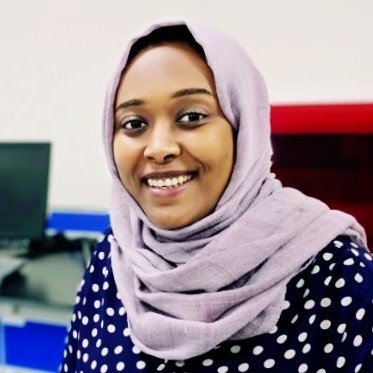
An online bioinformatics course to help scientists in Africa increase their knowledge in Bioinformatics and genomics has been described as ‘revolutionary’ by its attendees.
The free online course sparked a phenomenal response when it was first announced, with over 1,000 early-career scientists from 27 African countries applying for the 40 places available.
The training was delivered by scientists from the Centre of Tropical Livestock Genetics and Health (CTLGH) based at the International Livestock Research Institute (ILRI) in Nairobi, Kenya, in partnership with the Swedish University of Agricultural Sciences (SLU) and was an initiative of the Livestock CGIAR Research Program and CTLGH’s Dairy Genomics programme.
The two week course consisted of lectures, tutorials, practical sessions, assignments and discussions that covered the basics of bioinformatics and programming and how to analyse complex genomic data. The course participants then learned about how to apply this knowledge in the field of livestock genomics and breeding.
Supporting Capacity Development

Lucas Theodori is a PhD student at the Nelson Mandela African Institution of Science and Technology in Tanzania looking at wildlife-livestock interactions in a changing climate. He enjoyed the course immensely and commented that the knowledge he gained would have wide-reaching effects. He said:
“This training has been a revelation to me, and I am very grateful for being allowed to attend. I have learnt a great deal about the practical application of genomics and bioinformatics that will help me, my Institution and the development of livestock genomic research in Tanzania.”
“I look forward to being a good ambassador for this training by sharing my knowledge and materials with my fellow researchers.”

Sumaya Yousaf Yassin Kambal is originally from Sudan but is currently carrying out her PhD research project at ILRI in Ethiopia. She believes that this training course will support her both in her studies and her future career. She said:
“The skills and knowledge I have gained from this course will support me in my journey towards becoming an independent researcher. I hope to train others in my own country to increase research in livestock genomics so that sustainable breeding programmes can be developed in the future.”

Rev Dr Richard Osei-Amponsah is a senior lecturer in Animal Breeding and Genetics at the University of Ghana researching genes for heat tolerance, production and resilience in tropical Livestock for climate change adaptation.
He was keen to pass on what he learnt in this course to future researchers. He commented:
“The knowledge I have gained from this course will not only broaden my research focus but will allow me to update the teaching material and curriculum of the University to enhance the education of undergraduate and postgraduate students in this area.”
Building on success
The online course followed a very successful genomics workshop held in Ethiopia in 2019, also delivered by ILRI and SLU, which attracted 26 researchers from 14 sub-Saharan African countries.
Although the course was online, the number of participants was limited to ensure plenty of help to support participants and answer any questions.
To ensure that participants were able to fully engaged with the training course, the course organisers sent hard drives, by post to many participants before the course started, containing all the course materials and relevant data to support their future studies. This also helped remove any barriers participants may have faced trying to download large files remotely due to limited bandwidth.
Improving Knowledge in Bioinformatics
The training course was partly funded by CTLGH thanks to a Global Impact Accelerator Award from the University of Edinburgh as part of its annual Scottish Funding Council – Global Challenges Research Fund allocation.
Karen Marshall, ILRI researcher and co-lead of CTLGH’s Dairy Genomics programme, stressed the importance of training of this nature. She said:
“This bioinformatics training enabled scientists in Africa to learn how to analyse data generated from their countries’ animal genetic resources. This will accelerate local breed improvement and the conservation of the genetics of indigenous African livestock. Capacity building in bioinformatics is core to CTLGH’s Dairy Genomics programme and we were delighted to be able to offer this course.”
Erik Bongcam-Rudloff, Professor of Bioinformatics at SLU, was one of the Instructors and organisers involved in the course. He commented:
“The COVID-19 pandemic forced us to a transition from teaching in classrooms and computer rooms to create an online-teaching course using video conference and virtual teaching platforms. This succesful experience is a good indication on how bioinformatics education can be delivered in the future reaching more researchers and students than previously.”
Abdulfatai Tijjani, one of the course organisers, was delighted with how well this course was received:
“We were overwhelmed by the number of researchers who applied for this course and delighted with the feedback we received from those fortunate to secure a place. It highlights the definite need for more training of this nature, and we are keen to secure additional funding to develop this course further and offer it to more researchers to help build scientific capacity in livestock genetic research in Africa.”
**CTLGH receives funding from the Bill & Melinda Gates Foundation (BMGF), the UK Foreign Commonwealth and Development Office (FCDO), the UK Biotechnology and Biological Science Research Council (BBSRC) and Jersey Overseas Aid (JOA)**
